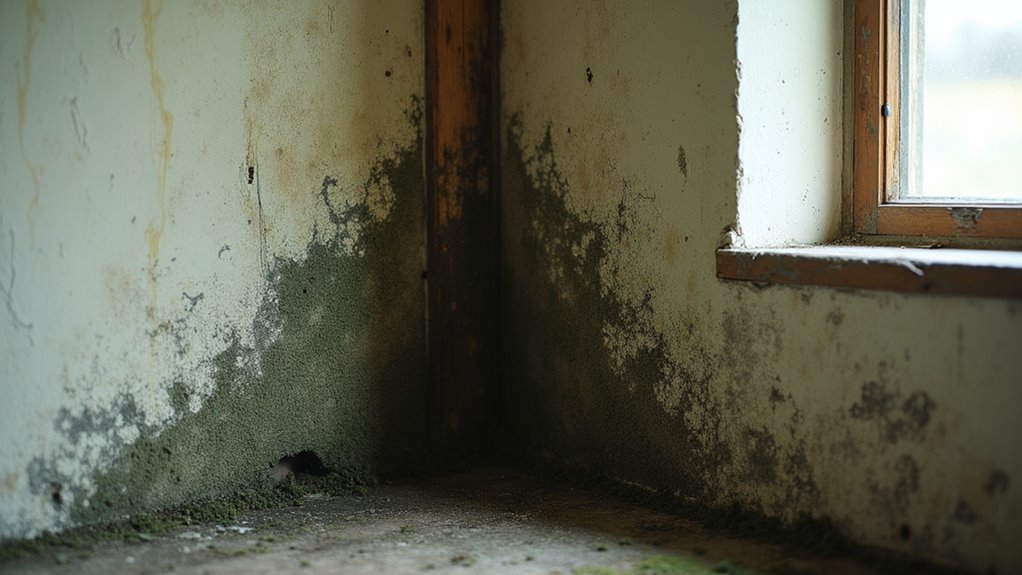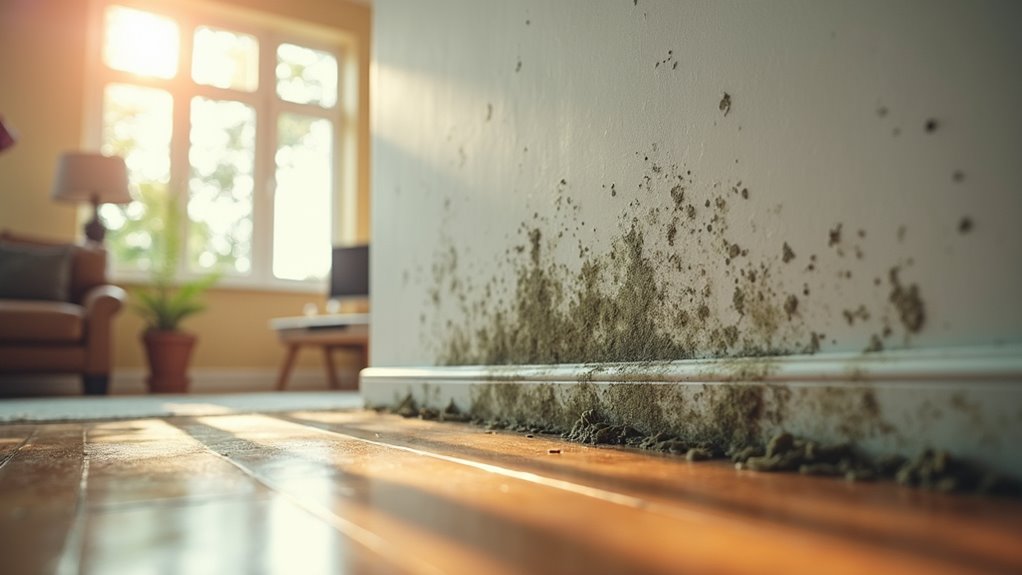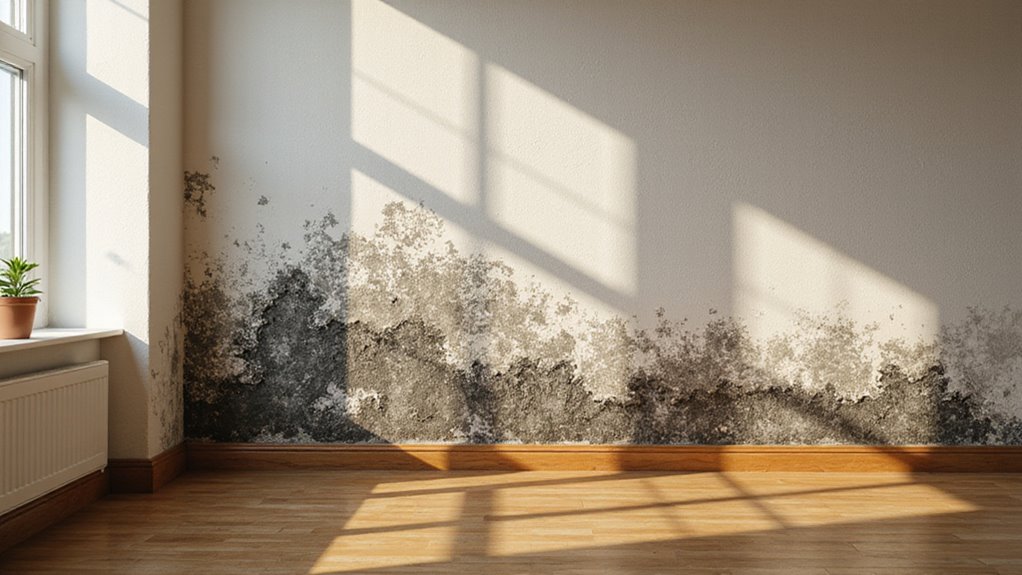Hidden beneath fresh paint and behind new drywall, mold issues lurk as silent deal-breakers in real estate transactions. Homeowners facing mold problems often panic about diminished property values and potential legal consequences. Yet with proper disclosure, documentation, and sometimes remediation, selling a mold-affected property remains entirely possible.
Yes, selling a house with mold is legally possible, but requires strict adherence to state disclosure laws. You must inform potential buyers about known mold problems and provide documentation of any testing or remediation efforts. In this blog I will explore everything about selling mold-affected homes and navigating disclosure requirements successfully.
Mold issues vary greatly in severity, from minor bathroom spots to major structural infestations. Most states require sellers to disclose known defects that materially affect property value. Hiding mold problems can trigger buyer lawsuits claiming fraud or misrepresentation after the sale.
Financial consequences for non-disclosure often exceed the original repair costs by substantial margins. Smart sellers obtain professional mold inspections and remediation before listing their property. Documentation of these efforts demonstrates good faith and helps maintain buyer confidence.
Property value impacts depend on mold type, extent, and underlying causes. Surface mold from minor humidity issues typically causes minimal value reduction. Extensive mold indicating structural water damage can slash asking prices dramatically.
Many buyers walk away completely when learning about significant mold history in a home. Others request substantial repair credits or price reductions to compensate for perceived risks.
Professional remediation from certified contractors provides the strongest selling position for affected homes. Transparent disclosure combined with proof of proper remediation reassures cautious buyers effectively.
Remember that disclosure requirements persist even after mold has been professionally treated. Always maintain complete records of all inspections, remediation efforts, and clearance testing.
Key Takeaways
- Sellers are legally required to disclose known mold issues, including hazardous conditions, under Oklahoma and federal laws.
- Proper documentation of mold inspections and remediation is essential to prove issues have been addressed.
- Failing to disclose mold can result in lawsuits, financial penalties, or difficulty securing buyer financing.
- Selling a house with mold is possible, especially after professional remediation and full disclosure.
- Transparency about mold conditions builds trust and can help facilitate a smoother sale process.
Can You Sell a House with Mold?

Yes, you can sell a house with mold. Disclosure is crucial for a legal sale. Oklahoma law requires sellers to disclose known mold issues and other hazardous conditions to potential buyers. This transparency protects both parties from future disputes.
Proper remediation before listing your property increases buyer confidence. Professional mold removal services provide documentation that reassures buyers. This paperwork shows you’ve addressed the problem responsibly.
In the long run, honesty about your home’s condition builds trust. Most buyers appreciate straightforward information about property issues. With proper disclosure and remediation, your mold-affected house can still attract reasonable offers.
What Types of Mold Affect Home Sales?

What Types of Mold Affect Home Sales?
Aspergillus, Cladosporium, and Stachybotrys (toxic black mold) most commonly affect home sales. Each type creates different problems for sellers. Aspergillus causes structural damage and triggers allergic reactions in potential buyers. Cladosporium often grows on damp surfaces and can significantly lower property values.
More importantly, toxic black mold presents serious health risks and requires expensive professional remediation. These issues must be disclosed during sales processes. Without proper disclosure, sellers face potential lawsuits from buyers. Furthermore, addressing mold problems early helps maintain your home’s value and ensures a smoother transaction.
How Does Mold Impact Your Home’s Value?

Mold typically reduces property value by 17 to 23 percent. This significant decrease happens because potential buyers fear health hazards and expensive remediation costs.
Home inspections that reveal mold often result in lower offers from concerned buyers. Many purchasers will request complete mold removal before proceeding with the sale.
Additionally, mortgage lenders may refuse financing for mold-affected properties. Insurance companies frequently charge higher premiums or deny coverage altogether for homes with mold histories. These financial complications further decrease marketability and overall value.
What Are the Legal Requirements for Selling a Moldy House?
When selling a house with mold, you must disclose any known hazardous conditions, including mold, per Oklahoma law, or risk legal action. You’re also responsible for documenting repairs and inspections to prove issues are addressed. Failing to disclose or provide proper documentation can lead to liability and costly lawsuits.
Disclosure Requirements by State
Each state has different rules for disclosing mold during property sales. Most states require sellers to report known mold problems under disclosure laws. California and New York have strict requirements, while some states remain silent on the issue.
Failing to disclose mold can lead to lawsuits and financial penalties. In many cases, buyers have successfully sued sellers who hid mold issues. Furthermore, federal guidelines from HUD and EPA recommend full transparency about all property conditions.
The safest approach is complete honesty about any mold history, regardless of your state’s specific requirements. This transparency protects you legally and builds trust with potential buyers.
Potential Liability Issues
Undisclosed mold problems can result in legal troubles when selling homes. Oklahoma law requires sellers to reveal known material defects, including mold issues. Failure to disclose can trigger lawsuits or financial penalties.
You might face fraud charges if you hide problems. Sellers bear no responsibility for truly unknown mold issues. However, courts may order you to pay for remediation costs if you knowingly conceal problems.
The legal system takes buyer health concerns seriously. To protect yourself, always provide complete documentation of any past mold remediation. Full disclosure remains your best defense against potential liability claims. This approach builds trust and reduces your legal exposure.
Documentation and Inspections
Yes, legal requirements exist for documenting mold when selling your home. You must complete proper assessments and inspections to meet disclosure obligations. Sellers must document all known mold issues or hazards in writing.
All inspection reports must be provided to potential buyers. Oklahoma law requires honest disclosure of material defects. This approach protects both parties from future legal complications.
Furthermore, transparent documentation builds trust with buyers. Proper disclosures reduce the risk of lawsuits after closing. Professional inspections offer peace of mind and strengthen your selling position.
How to Sell a House with Mold Problems
To sell a house with mold problems, start with a professional mold assessment to identify issues clearly. Consider remediation options to clean up the problem and document your efforts, which can help reassure buyers.
Adjust your pricing strategy or offer repair credits to make the deal more attractive, and craft a marketing approach that transparently addresses the mold condition.
Professional Mold Assessment
A professional mold assessment identifies the type, location, and extent of mold in your home. This evaluation is essential when selling properties with suspected contamination. Certified inspectors use specialized equipment to detect hidden mold and measure airborne spore concentrations.
Always hire licensed mold remediation specialists with proper credentials and insurance. Their detailed reports provide documentation that satisfies disclosure requirements in most states.
Furthermore, these assessments help determine appropriate remediation strategies. The results will guide your renovation plans and protect you from future liability claims.
In addition, buyers feel more confident when they see professional documentation of resolved mold issues. Many lenders require professional mold clearance before approving financing.
Remediation Options
Several strategies exist for handling mold issues when selling your home. Professional mold removal offers thorough elimination but costs vary based on severity. Testing confirms the presence of mold and helps target specific problem areas.
Prevention measures reduce future risks through moisture control and ventilation improvements. DIY approaches save money initially but risk missing hidden mold patches. Proper remediation typically costs between $500-$6,000 depending on contamination levels.
Most states require seller disclosure of known mold problems. The investment in professional treatment often pays off through higher selling prices and faster transactions. Furthermore, addressing mold properly protects you from potential legal issues after closing.
Pricing Strategies
Price your mold-affected house below market value to attract potential buyers. This strategy acknowledges the issue upfront while creating interest in your property. You can offer specific remediation credits to make the deal more attractive.
Home valuation should reflect mold severity and estimated repair costs. The adjustment allows for transparent as-is selling without surprises. Buyers appreciate honesty about property conditions.
Furthermore, consider getting professional remediation quotes before setting your price. This preparation helps justify your asking price when buyers negotiate. The right pricing strategy balances quick sale potential with reasonable financial return.
Marketing Approach for Homes with Disclosed Issues
Disclose property issues upfront to build buyer trust. Transparency creates better long-term outcomes for sellers. Potential buyers appreciate honesty about known problems. This approach reduces legal risks after the sale.
Property issues should come with clear solution plans. Mold remediation certification provides documented proof of proper treatment. Complete repairs show your commitment to property condition. Professional documentation helps justify your asking price despite disclosed issues.
| Issue | Solution | Benefit |
|---|---|---|
| Selling property with mold | Complete home repairs | Builds buyer trust |
| Mold remediation | Certification of cleanup | Eases buyer negotiations |
| Unknown risks | Full disclosure | Protects your integrity |
What Are Your Options When Selling a House with Mold?
When selling a house with mold, you have three primary options. First, you can sell the property as-is with full disclosure of the mold problems. Legal requirements mandate disclosing known defects to potential buyers. This approach typically results in a lower sale price but avoids remediation costs.
Second, you can professionally remediate the mold before listing. This option attracts conventional buyers and maintains your property’s market value. Always keep detailed documentation of all remediation work completed.
Third, you might sell to real estate investors or cash buyers. These purchasers often specialize in distressed properties and may offer a faster closing timeline. However, expect to receive less than market value in exchange for convenience.
Who Buys Houses with Mold Damage?
Cash buyers and real estate investors typically purchase mold-damaged homes. They seek these properties at reduced prices, seeing potential profit after remediation.
Investors often have experience dealing with black mold issues and understand the renovation costs involved. The discount they receive offsets the expense of professional mold removal. Regular homebuyers might consider these properties too, but only after proper remediation.
Most lenders require mold issues to be resolved before approving financing. Documentation of proper mold removal is essential for these transactions. Clear remediation records protect both buyers and sellers from future liability concerns.
Ready to Sell Your Moldy House? Contact Shawn Buys Houses Today
Yes, Shawn Buys Houses will purchase your home despite mold issues. We simplify selling moldy houses by managing all legal requirements. Our team coordinates with qualified mold specialists for proper assessment.
Sellers must obtain professional mold testing before any property transfer. Complete certified remediation is required in most jurisdictions. Full disclosure of all known mold problems is legally mandatory. As a result, you avoid potential lawsuits from buyers discovering undisclosed issues.
Furthermore, our process protects you while ensuring responsible property transfer. We handle everything efficiently so you can move forward with confidence.
Frequently Asked Questions
Can I Sell My House if I Don’T Know About Hidden Mold?
You can sell your house if you don’t know about hidden mold, but you’re not protected from legal liability. Disclose known issues honestly; ignorance isn’t a defense if the mold becomes known later or damages occur.
Are There Specific Mold Disclosure Forms Required in Oklahoma?
Oklahoma requires a property disclosure form, but no specific mold disclosure form exists. You must honestly reveal known mold issues on the standard Residential Property Condition Disclosure Statement to serve buyers and avoid legal risks.
How Long Does Mold Remediation Documentation Last During a Sale?
Your mold remediation documentation remains valid during a sale as long as it’s current, accurate, and verifiable. Keep it updated and readily available to reassure buyers, demonstrate proper repairs, and comply with legal disclosure requirements effectively.
What Are the Penalties for Nondisclosure of Mold in Oklahoma?
Missing mold disclosure in Oklahoma can land you in hot water, risking lawsuits, fines, and damages. You gotta play it straight to avoid legal trouble, ensuring transparency protects both you and future homeowners.
Do Federal or State Laws Require Mold Testing Before Sale?
Federal and state laws don’t require mold testing before selling, but Oklahoma sellers must disclose known mold issues. You should consider professional testing and remediation to protect buyers, avoid legal trouble, and ensure a smooth transaction.

